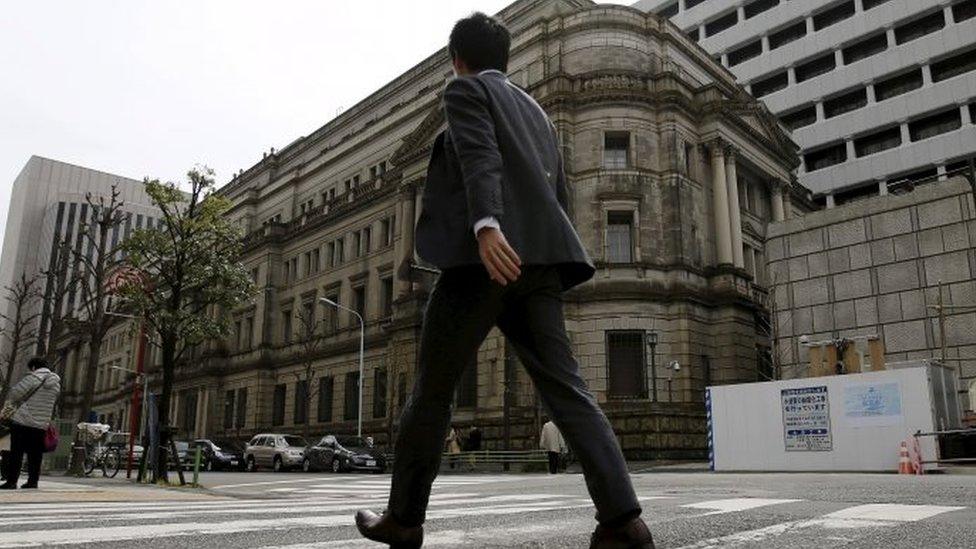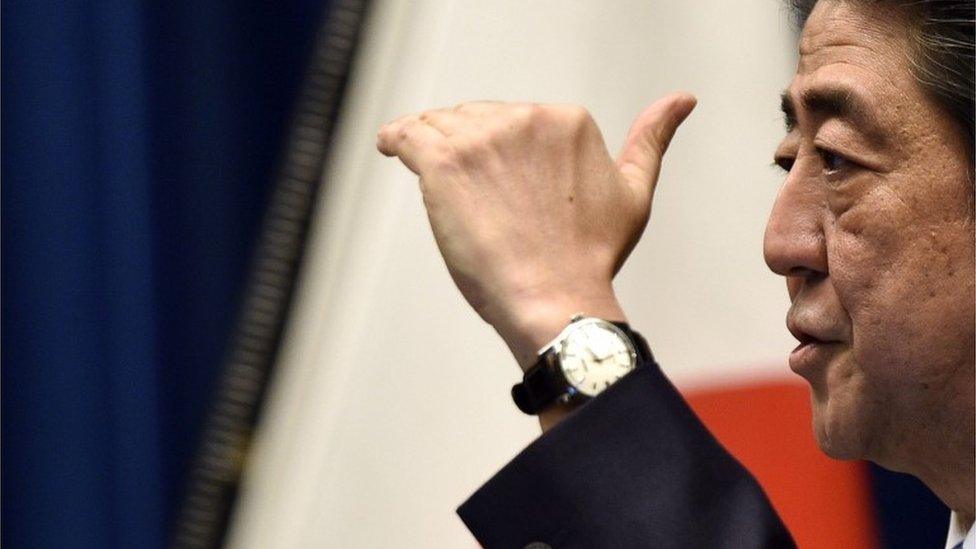Yen jumps against dollar as Japan keeps rates on hold
- Published

The Japanese yen has climbed by more than 2% against the US dollar, after the Bank of Japan decided to keep interest rates on hold after its two-day meeting.
The BoJ also kept its target for government bond buying unchanged.
But the central bank said it would double its annual purchase of exchange traded funds to 6tn yen ($57bn; £43bn) from the current 3.3tn yen.
Market watchers had been expecting more from the central bank.
Expectations were raised after Prime Minister Shinzo Abe announced earlier this week a 28tn yen stimulus plan to help boost the flagging economy.
The Nikkei 225 headed lower after the decision, but the benchmark index clawed into the positive at the end of Friday's session and closed up 0.56% - or 92.43 points - to 16,569.27.
'Volatile yen'
As for the yen it strengthened to 103.67 against the US dollar. Before the Bank of Japan decision, the yen was hovering at around 105.
The central bank's next meeting will take place in September. Analysts say more measures could come from the Bank of Japan later in the year.
"What's noteworthy is that the BoJ has promised to review the effects of its policy at its next meeting, keeping alive expectations of further easing," said Shunsuke Yamada from Bank of America Merrill Lynch.
"This makes the next meeting very important. The yen is likely to be volatile until then."

Mr Abe had previously signalled a new stimulus might be needed
Data earlier in the day showed Japanese household spending fell 2.2% in June from a year earlier. And retail sales dropped 1.4% in the same month from the previous year.
These are the latest signals that domestic consumption remains weak in the world's third-largest economy.
Meanwhile, core consumer prices fell for a fourth straight month in June, in another blow to Japan's war on deflation.
But industrial output rose 1.9% in June, better than the 0.7% many economists were expecting.
The Bank of Japan introduced a negative interest rate policy in January this year.
Pharmaceutical deal
Elsewhere in Asia, China's benchmark Shanghai Composite index was lower by 0.3% at 2,984.50.
Meanwhile in Hong Kong the Hang Seng index was down 0.9% in early afternoon trade at 21,979.85.
But shares of Shanghai Fosun Pharmaceutical, trading in Hong Kong were up by more than 2%, outperforming the broader market.
The rise was triggered by news the firm has agreed to acquire up to 86% of India's Gland Pharma, external, for up to $1.3bn (£1bn). The Indian firm manufactures generic injectable drugs, which are mostly sold in the United States. The deal marks the largest acquisition of an Indian company from an overseas interest this year.
In South Korea, the Kospi closed down 0.2% at 2,016.19.
And over in Australia, the benchmark ASX 200 share index rounded off the trading week 0.1% higher at 5,562.30.
- Published27 July 2016